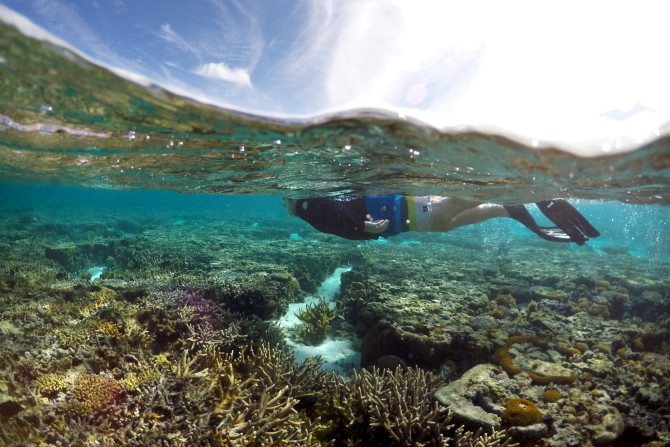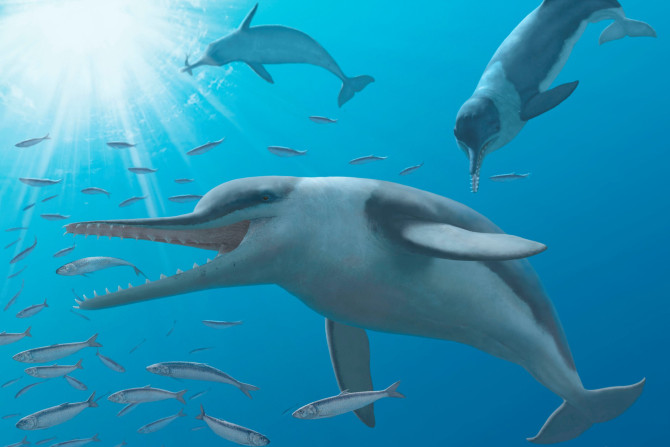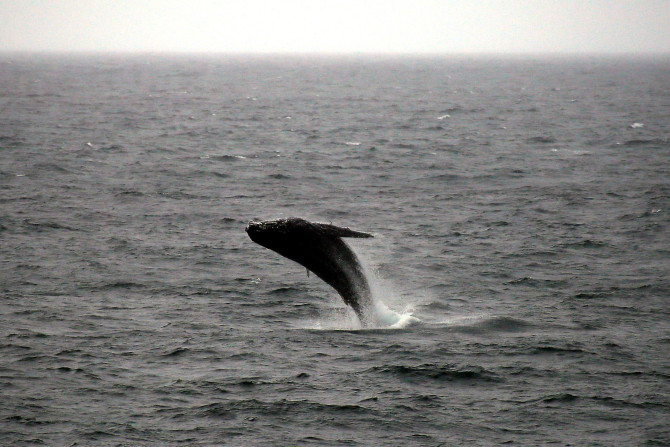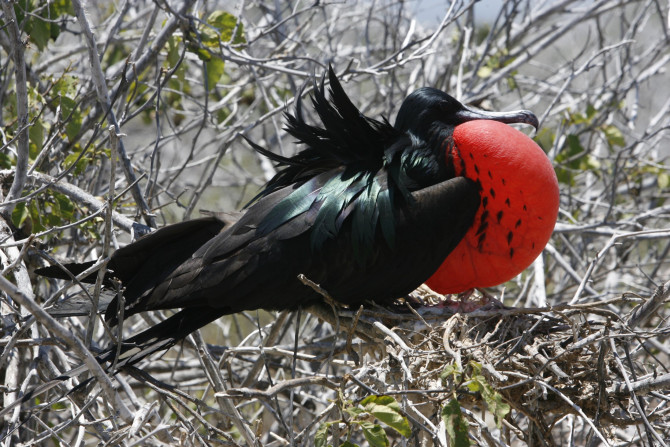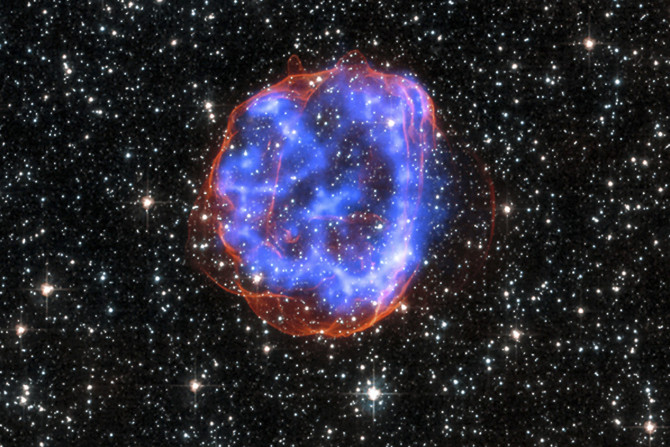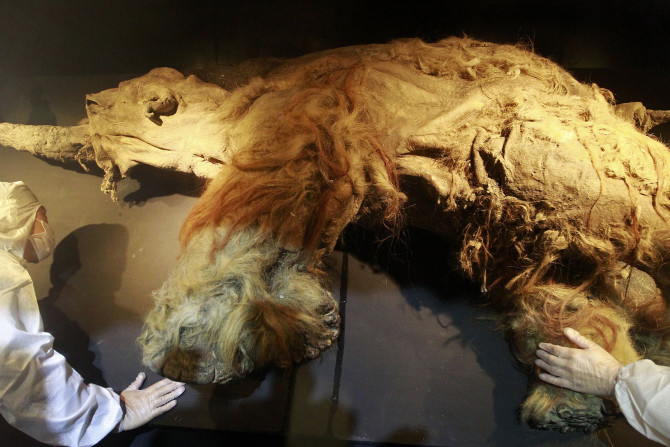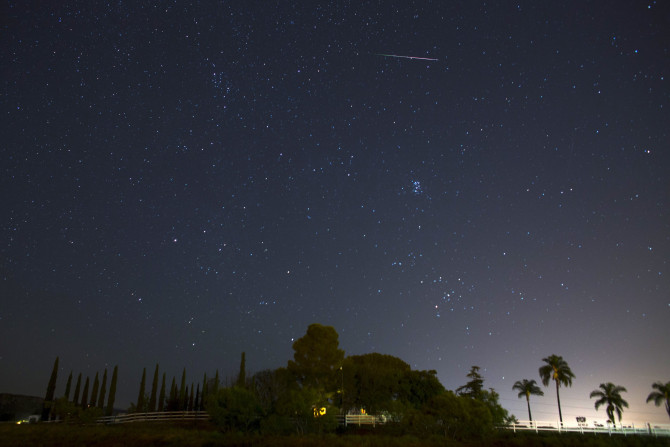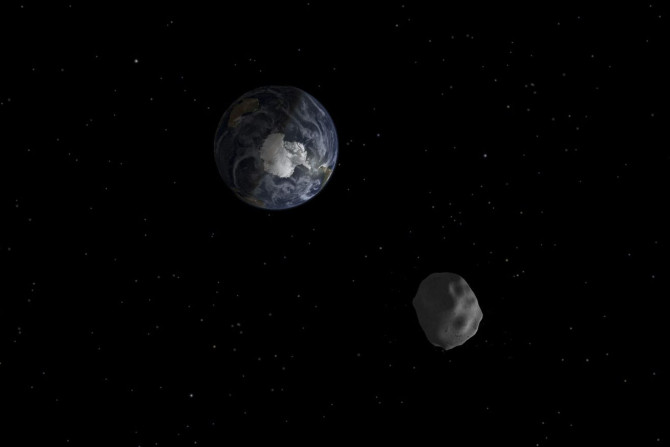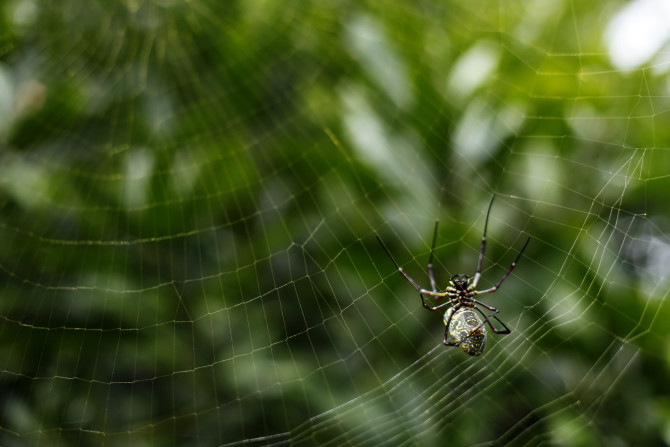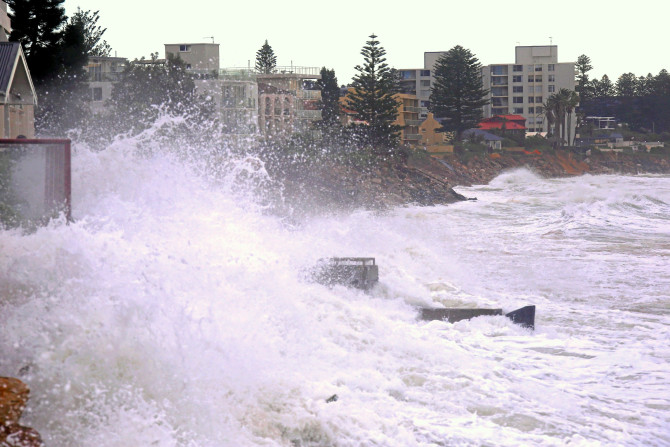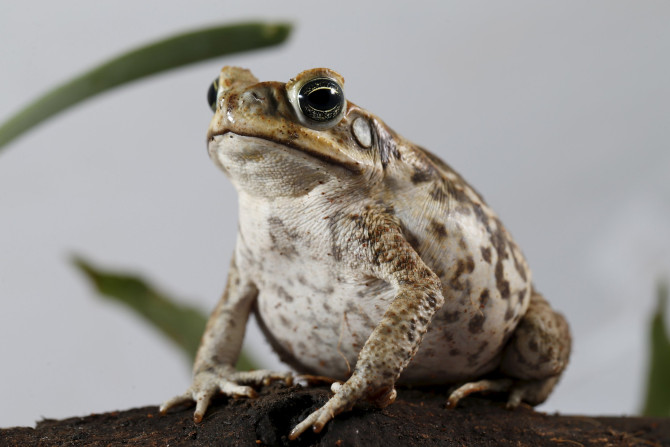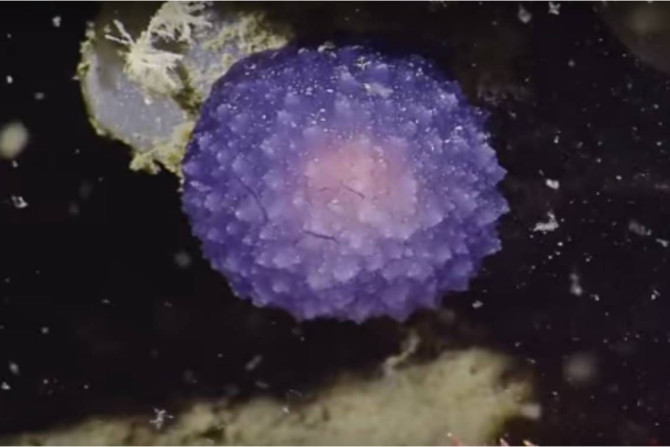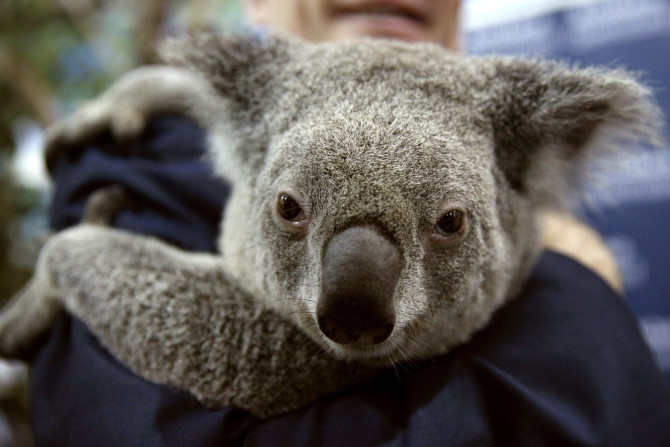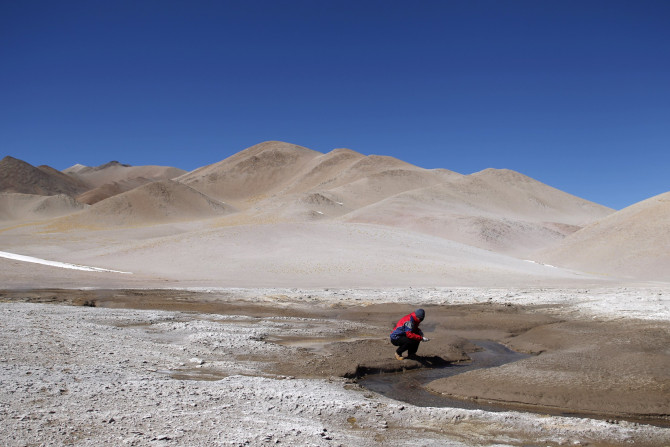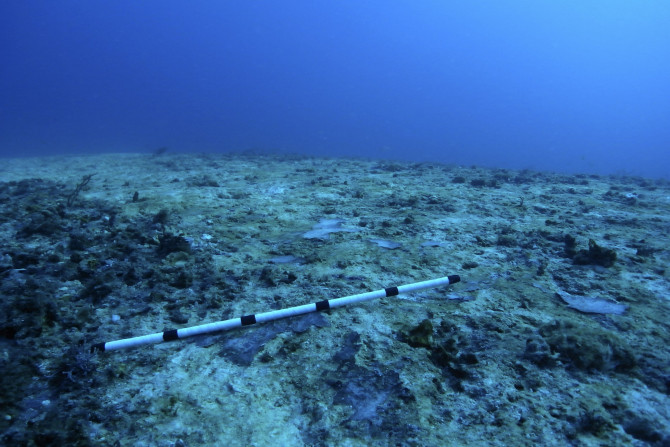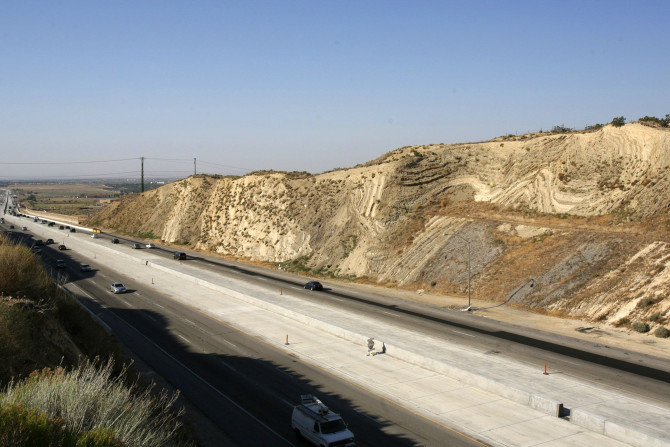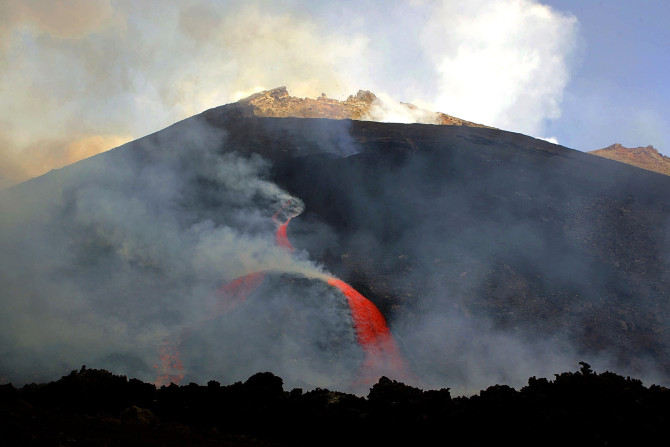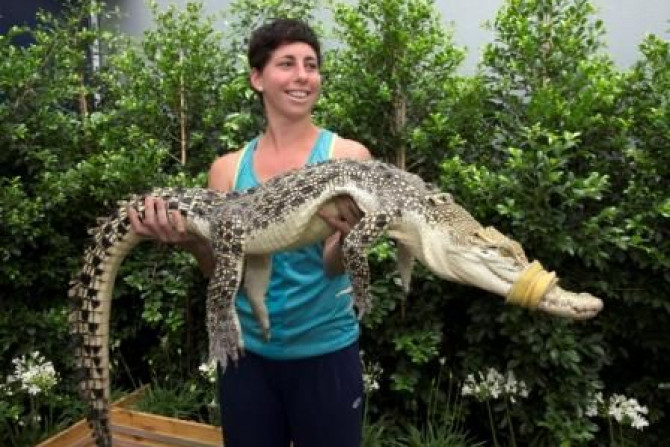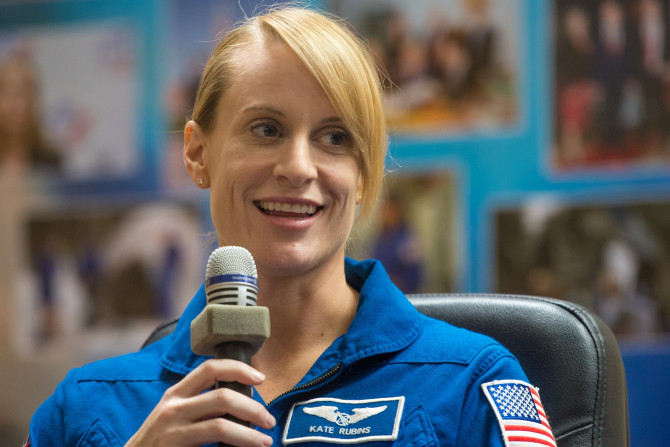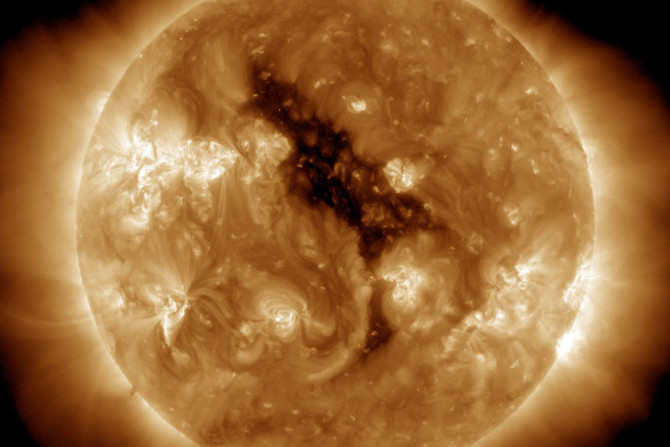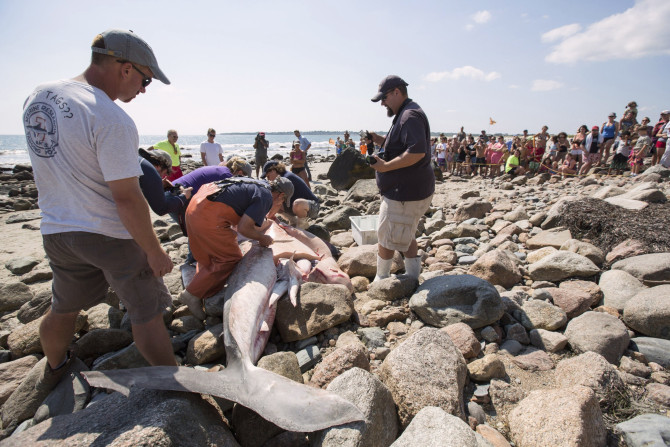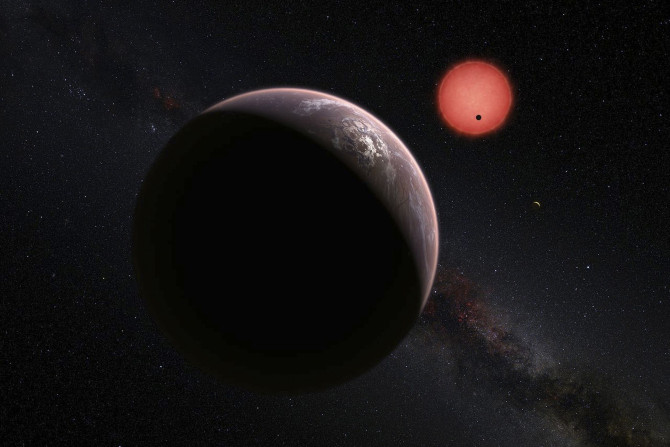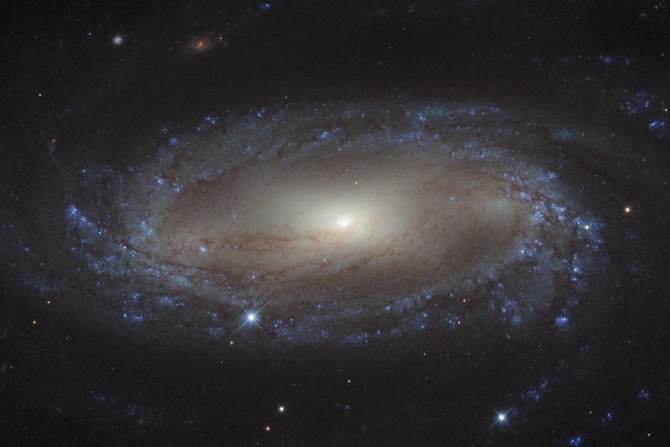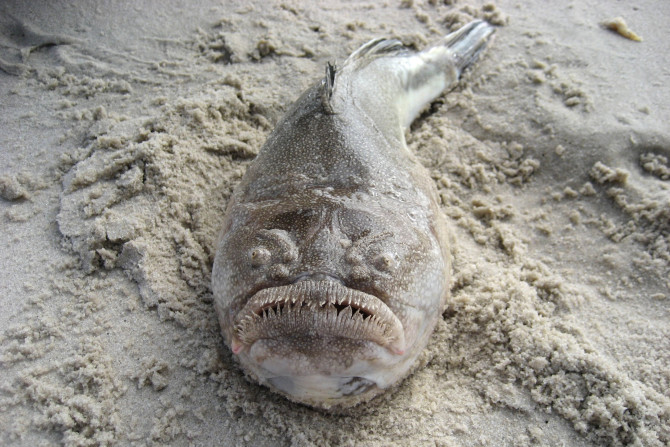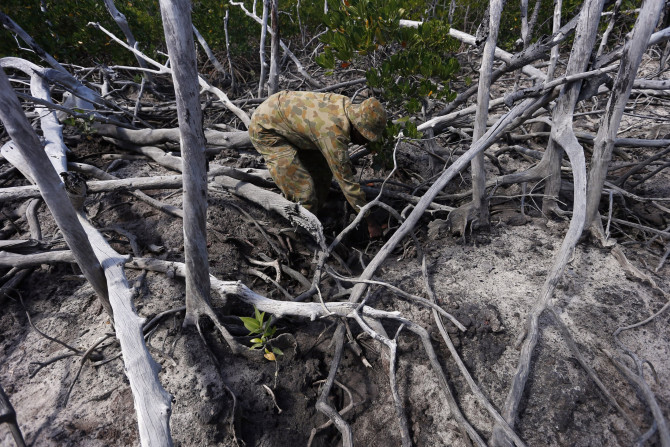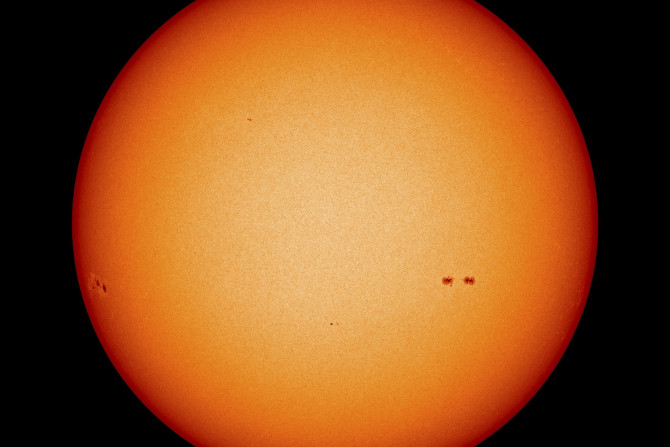Researchers have found that whales’ ultrasonic hearing has an ancient history. Their high-frequency hearing abilities arose earlier than anticipated. Morgan Churchill of New York Institute of Technology in Old Westbury, New York, said that the high-frequency hearing of whales may have preceded the emergence of echolocation.
Ritwik Roy
Aug 06, 2016
Revolutionary self-propelling liquid metals are slowly bridging the gap between science fiction and reality. Shape-shifting Terminator T-1000 robot may soon be a reality after scientists have announced a liquid-metal breakthrough. It may be possible to develop a 3D liquid metal humanoid, researchers said.
Ritwik Roy
Aug 05, 2016
Experts have revealed that humpback whales save other species from ocean killers. Apart from their gigantic size, spectacular leaps and gentle behaviour, whales also have another amazing characteristic and that is concern for other animals.
Ritwik Roy
Aug 05, 2016
German scientists have proved that birds can sleep while flying. This weird habit of birds have been theorised for long. However, scientists from Max Planck Institute in Seewiesen, Bavaria, said that they have definitive proof for the first time.
Ritwik Roy
Aug 04, 2016
Astronomers have reportedly discovered the most-desolate place in the Milky Way. The vast expanse right at the centre could well be a cosmic desert that is completely devoid of young stars. The new study by the international team of researchers promises to better the understanding of the entire Milky Way.
Ritwik Roy
Aug 03, 2016
Scientists may have found an answer to why one of the last known groups of woolly mammoths died and were wiped out from the face of Earth. As per a new study, Alaskan woolly mammoths could have died of thirst as water became scarce around five thousand years ago.
Ritwik Roy
Aug 03, 2016
It will be a double delight for stargazers as North Wales would allow them a chance to not only witness the Perseid meteor shower but also spot Jupiter, Saturn, Mars, Venus and Mercury this August. The five planets would be aligned along with the famous Perseid meteor shower, a perfect treat for stargazers.
Ritwik Roy
Aug 02, 2016
New reports on asteroid Bennu suggest that Earth won’t be hit. The odds of the asteroid hitting earth are 1 in 2,700 and it would take 150 years to do so. Moreover, to reach the odds, Bennu would have to be gravitationally nudged from its current course when it passes between Earth and moon.
Ritwik Roy
Aug 02, 2016
An international team of researchers has found that spider silk may be used to manipulate heat and sound. The silk shares a useful property with semiconductors.
Ritwik Roy
Jul 27, 2016
In almost three decades, Lake Pedder in Tasmania is set to overflow for the first time. In the last 24 hours heavy rains lashed the region and the lake’s water level has risen 20cm. With capacity now at 99 percent, the lake is set to overflow on Wednesday.
Ritwik Roy
Jul 27, 2016
Frogs are remarkably diverse when it comes to sex and reproduction. Cornell University frog biologists have revealed in a new study that some frogs hide on land to reduce competition from other males who also want to fertilize those eggs. They have sex on land as they have smaller testes.
Ritwik Roy
Jul 27, 2016
Researchers with the Ocean Exploration Trust are scratching their heads after Exploration Vessel Nautilus unearthed a purple-coloured orb underwater in the Channel Islands off the coast of California.
Ritwik Roy
Jul 27, 2016
Statistics released by the Department of Main Roads and Transport revealed that wild dogs have been responsible for many koala deaths. The statistics portray a grim picture of the planning process around the relocation of the koala population.
Ritwik Roy
Jul 27, 2016
Researchers have revealed that all life as we see today descended from a microbe about four billion years ago. The microbe adapted itself to survive mineral-rich, oxygen-free and warm environments.
Ritwik Roy
Jul 26, 2016
Researchers at James Cook University have shown how Australia’s Great Barrier Reef may be given improved protection. They have shown a way to halve the amount of fertiliser dairy farmers use and at the same time maintain pasture yields. This, in turn, would provide increases protection to the Great Barrier Reef.
Ritwik Roy
Jul 26, 2016
A new study suggests that rocks formed beneath the ocean floor via rapidly-spreading tectonic plates may be a massive free source of hydrogen gas previously overlooked. The finding by Duke University researchers in the US may prove to be a goldmine for scientists as they believe free hydrogen gas (H2) may be responsible for life on Earth.
Ritwik Roy
Jul 22, 2016
Scientists have revealed that the gravitational pull between the moon and the sun does not only cause high and low tides on Earth. The tug can also cause a special type of earthquake on the San Andreas Fault. Scientists have come to this conclusion after analysing 81,000 low-frequency earthquakes along the San Andreas Fault.
Ritwik Roy
Jul 20, 2016
Researchers from the National Institute of Geophysics and Volcanology in Rome have revealed that an “extinct” volcano is coming back to life. They have warned that if it erupts, it will be as violent as the Mt Vesuvius one that wiped out Pompeii completely.
Ritwik Roy
Jul 20, 2016
After a two metre crocodile was spotted sunbathing at the popular Barron River aquatic recreation area, swimmers have been urged not to take a plunge in Lake Placid.
Ritwik Roy
Jul 19, 2016
SpaceX is all set to send fresh cargo to the International Space Station (ISS) and it will include a handheld DNA sequencer that may one day help in detecting alien life forms.
Ritwik Roy
Jul 18, 2016
A gap in the sun’s magnetic field is allowing heat from the star to escape into space. Discovered by NASA, the mysterious coronal hole may cause communications chaos on Earth.
Ritwik Roy
Jul 15, 2016
In an unusual move to protect sharks in Great Barrier Reef, WWF Australia has made a $100,000 purchase of shark net licence. The move aimed at removing the licence from circulation.
Ritwik Roy
Jul 14, 2016
Researchers recently discovered flowers of a new orchid species that resembles the devil’s head. A close look at the flowers’ heart revealed the demonic patterns. The devilish orchid is a Critically Endangered species in the International Union for Conservation (IUCN) Red List.
Ritwik Roy
Jul 13, 2016
Astronomers have discovered a new dwarf planet beyond Neptune and it circles our sun in a wide orbit. The scientists have made the discovery via a telescope at the top of Mauna Kea, Hawaii.
Ritwik Roy
Jul 12, 2016
A gigantic earthquake may be lurking under South Asia. A mega-thrust fault under Bangladesh, Myanmar and India may expose millions to the risk of a 9.0 magnitude earthquake that could claim 140 million lives.
Ritwik Roy
Jul 12, 2016
Scientists have revealed in a new study that a “Frankenstein” galaxy, formed from parts of other galaxies, is younger on its inside than the outside. UGC 1382 is situated about 250 million light years away and is seven times wider than out galaxy Milky Way.
Ritwik Roy
Jul 12, 2016
The creepy-looking fish found in the sands of Virginia Beach that prompted a surfing group to warn beachgoers is not a real threat to humans, said an East Coast Surfing Championships (ECSC) Facebook post. However, visitors are still advised to be cautious and be on the lookout of the strange-looking fish that was spotted near the shoreline.
Ritwik Roy
Jul 11, 2016
Just like the Great Barrier Reef coral bleaching, vast areas of mangrove in Australia’s north are dead. Scientists believe that climate change may have been responsible for the staggering deaths. The die-off occurred over a single month.
Ritwik Roy
Jul 11, 2016
Researchers have developed a miniature device that may be capable of producing an endless supply of wine with the help of strategically-placed yeast and fermenting plane old grape juice. American and Swiss scientists are currently trialling the micro winery that can turn grape juice into alcoholic wine in just an hour. Conventional winemakers sometimes take weeks to produce the alcoholic wine.
Ritwik Roy
Jul 08, 2016
An international team of scientists have recently discovered a strange planet in a faraway solar system that has not one but three suns. The planet, named HD 131399Ab, is way weirder than Luke Skywalker’s home planet Tatooine in the Star Wars saga that orbited around two suns.
Ritwik Roy
Jul 08, 2016


